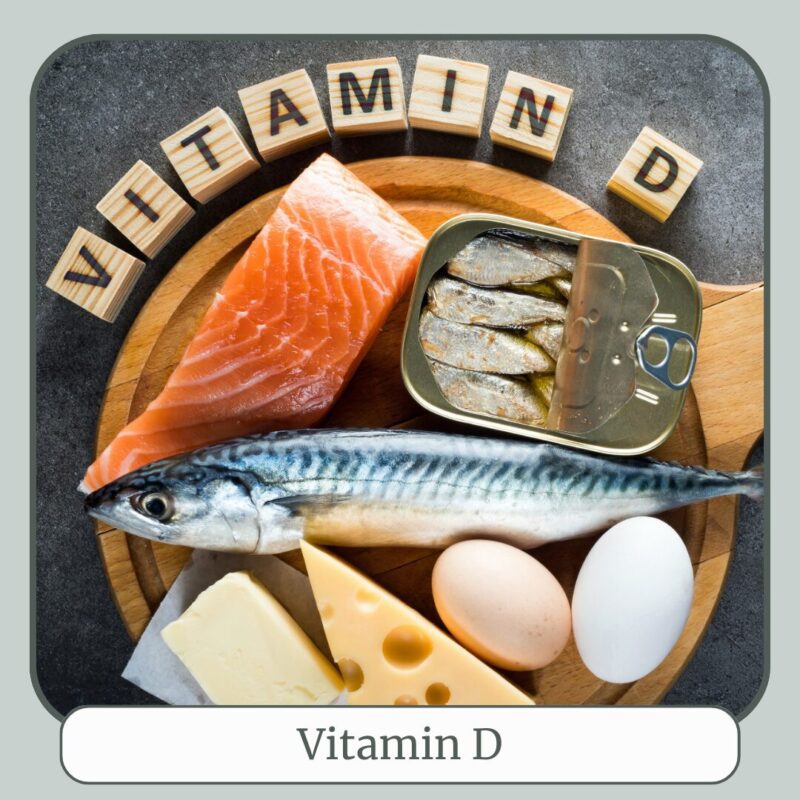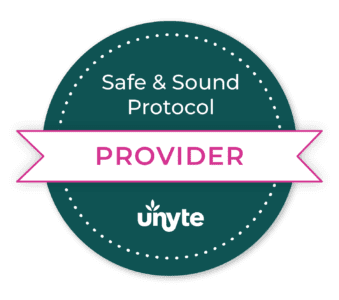Table of Contents
The Essentials: What You Need to Know About Vitamin D
Vitamin D is a fat-soluble vitamin that your body produces when your skin is exposed to sunlight. It can also be found in certain foods and supplements. While it’s best known for supporting bone health, Vitamin D also plays a significant role in mental well-being. Low levels of Vitamin D have been linked to conditions such as depression, anxiety, seasonal affective disorder (SAD), and even cognitive decline. Vitamin D receptors are present throughout the brain, especially in areas responsible for mood regulation and cognitive function. This vitamin helps regulate the production of serotonin—the “feel-good” neurotransmitter—while reducing stress hormones like cortisol.The Nutrient in Action: 5 Ways Vitamin D Boosts Mental Health
1. Mood Regulation and Depression
Vitamin D helps regulate serotonin, the hormone responsible for mood balance. Low levels of serotonin are linked to depression, and studies have consistently shown a relationship between Vitamin D deficiency and depressive symptoms. People with seasonal affective disorder (SAD), who experience depression during the winter months, often benefit from Vitamin D supplementation when sunlight exposure is limited. Supplementing with Vitamin D has been shown to improve mood and reduce depressive symptoms, especially in those already deficient.
2. Cognitive Function and Brain Health
Vitamin D supports cognitive function by protecting neurons and improving cell communication. Studies have shown that low levels of Vitamin D are associated with cognitive decline, especially in older adults. Maintaining adequate levels of Vitamin D helps preserve memory and learning abilities and may lower the risk of neurodegenerative diseases like Alzheimer’s. Research suggests that Vitamin D supports brain health by reducing inflammation and oxidative stress, which are linked to cognitive disorders.
3. Stress and Anxiety Management
Vitamin D plays a crucial role in managing the body’s response to stress. It helps regulate the hypothalamic-pituitary-adrenal (HPA) axis, which controls the release of cortisol, the primary stress hormone. When Vitamin D levels are low, the body’s ability to manage stress is compromised, leading to higher levels of anxiety and stress-related symptoms. Adequate Vitamin D helps balance cortisol levels, keeping your stress in check and supporting emotional stabilit.
4. Supporting Sleep and Circadian Rhythm
Vitamin D also influences sleep quality by helping regulate the body’s internal clock, known as the circadian rhythm. Studies show that people with low Vitamin D levels often experience poor sleep quality, shorter sleep duration, and more disturbances. By improving Vitamin D levels, you can promote better sleep patterns, which are crucial for both mental and physical health. This also helps reduce fatigue, a common symptom of Vitamin D deficiency.
5. Immune Health and Mental Resilience
A healthy immune system is closely tied to mental well-being. Vitamin D enhances immune function by promoting the activity of T-cells and other immune defenders, helping your body fight off infections and inflammation. Chronic inflammation has been linked to both depression and cognitive decline, so supporting immune health through adequate Vitamin D intake can indirectly protect your mental resilience.
Synergistic Nutrients: How Vitamin K2 and Magnesium Support Vitamin D
1. Vitamin K2: Partnering with Vitamin D
Vitamin K2 works alongside Vitamin D to direct calcium to the right places—like your bones—rather than soft tissues like arteries, where it could lead to calcification. Together, Vitamin D3 and K2 enhance bone health and protect cardiovascular health.2. Magnesium: Activating Vitamin D
Magnesium is necessary to convert Vitamin D into its active form in the body. Without enough magnesium, your body may not fully benefit from Vitamin D, even if you’re getting plenty of sun or taking supplements. Many people who are deficient in Vitamin D also have low magnesium levels, so it’s crucial to ensure adequate magnesium intake.How to Get Enough Vitamin D: Sunlight, Food, and Supplements
1. Sunlight
Spending 10-30 minutes in the midday sun a few times a week is often enough to maintain healthy Vitamin D levels. However, factors like skin tone, geographic location, and sunscreen use can impact how much Vitamin D your body produces.
2. Food Sources of Vitamin D
If your sun exposure is limited, here are some top food sources to help you meet your Vitamin D needs:
Top 10 Food Sources of Vitamin D
- Salmon – A top source of Vitamin D3.
- Mackerel – Another oily fish packed with Vitamin D.
- Sardines – Convenient and loaded with Vitamin D.
- Egg yolks – Especially from pasture-raised hens.
- Fortified milk – An easy dietary source.
- Fortified orange juice – Great for non-dairy options.
- Cod liver oil – A super-concentrated source.
- Tuna – Canned varieties still offer a good dose.
- Mushrooms – Exposed to UV light to boost Vitamin D content.
- Fortified cereals – Check labels for added Vitamin D.
Vitamin D Deficiency: Are You at Risk?
Vitamin D deficiency is surprisingly common, particularly in areas with long winters or limited sunlight. Populations at higher risk include:- Older adults, as the skin’s ability to produce Vitamin D decreases with age.
- People with darker skin, who need more sunlight to produce adequate Vitamin D.
- Those who spend most of their time indoors or wear sunscreen religiously.
- Individuals with digestive issues that affect nutrient absorption, such as Crohn’s disease.
What to Look for in a Vitamin D Supplement
When choosing a Vitamin D supplement, it can be overwhelming due to the many options on the market. Here are some tips to help you navigate:1. Form of Vitamin D
Opt for Vitamin D3 (cholecalciferol), which is the most effective form at raising and maintaining Vitamin D levels in the bloodstream.2. Dosage
The recommended daily allowance for Vitamin D varies based on age and individual needs, but for most adults, it’s around 600-800 IU. Some individuals, particularly those with a deficiency, may require higher doses, but it’s important to consult with a healthcare provider.3. Absorption
Because Vitamin D is fat-soluble, it’s better absorbed when taken with healthy fats. Some supplements include oils, like coconut or olive oil, to aid absorption.4. Quality and Purity
Choose supplements that are third-party tested for quality and purity to ensure you’re getting the advertised dose without harmful additives or fillers. Look for certifications from trusted organizations like USP or NSF.Vitamin D Supplements to Consider
Here are a few highly-rated Vitamin D3 supplements that meet the criteria of quality, third-party testing, and thoughtful formulation (e.g., combined with Vitamin K2 or magnesium):- Form: Vitamin D3 (cholecalciferol) from lanolin.
- Why it’s good: This supplement is third-party tested and contains Vitamin D3 in its most absorbable form. It’s also combined with extra virgin olive oil, which enhances absorption since Vitamin D is fat-soluble.
- Third-Party Certification: Certified by the Non-GMO Project and Friend of the Sea for sustainable sourcing.
- Other Options from This Brand:
- D3 +K2 Gummies
- Vitamin D3 combined with a high quality Omega 3
- A Plant Based Liquid D3 for vegetarians
- Vitamin D3 Gummies for Kids
- Form: Vitamin D3 and K2 (MK-4).
- Why it’s good: This supplement combines Vitamin D3 and K2, which work together to promote bone health by ensuring calcium is properly directed to bones and not arteries. Thorne is well-known for its rigorous testing protocols.
- Third-Party Certification: Tested for purity and potency by NSF International.
- Bonus: Thorne is a trusted brand recommended by health professionals.
- Form: Vitamin D3 (cholecalciferol) from lichen (Vegan).
- Why it’s good: This is one of the best options for vegans, as it’s derived from lichen rather than lanolin. It’s also made with organic ingredients and includes probiotics to support digestion.
- Third-Party Certification: Non-GMO Project Verified and tested for quality and purity.
- Note: Great for those following plant-based diets but looking for quality supplementation.
- Form: Vitamin D3 (cholecalciferol) from lanolin.
- Why it’s good: An affordable and effective option. It’s combined with extra virgin olive oil to help with absorption. NOW Foods is a reputable brand with a long history of producing quality supplements at accessible prices.
- Third-Party Certification: UL Certified for dietary supplements.
- Form: Vitamin D3 (cholecalciferol) and Vitamin K2 (MK-7 from chickpea).
- Why it’s good: It combines Vitamin D3 with K2 to support bone health and calcium metabolism. The addition of K2 (MK-7 form) ensures calcium is directed to the right places.
- Third-Party Certification: Non-GMO Project Verified and tested for purity.
- Form: Vitamin D3 (cholecalciferol) from lanolin.
- Why it’s good: This is a hypoallergenic option, free of gluten, soy, dairy, and GMOs, making it suitable for people with allergies. Pure Encapsulations is a trusted brand for those with sensitive systems.
- Third-Party Certification: Certified for purity and potency by NSF International.
-

Rachel Plympton, LCSW, brings 14+ years of expertise to her mission of creating lasting, whole-body wellness. Using a dynamic blend of Play Therapy, Cognitive Behavioral Therapy, Mindfulness, EMDR, and Safe and Sound Protocol™ (SSP), she helps clients break through barriers and achieve meaningful change. Rachel also offers Wellness Panels that reveal powerful insights into the link between mental and physical health. Whether working with children, teens, or adults, Rachel is dedicated to guiding her clients in transformation and resilience.
View all posts
 (281) 305-9387
(281) 305-9387









